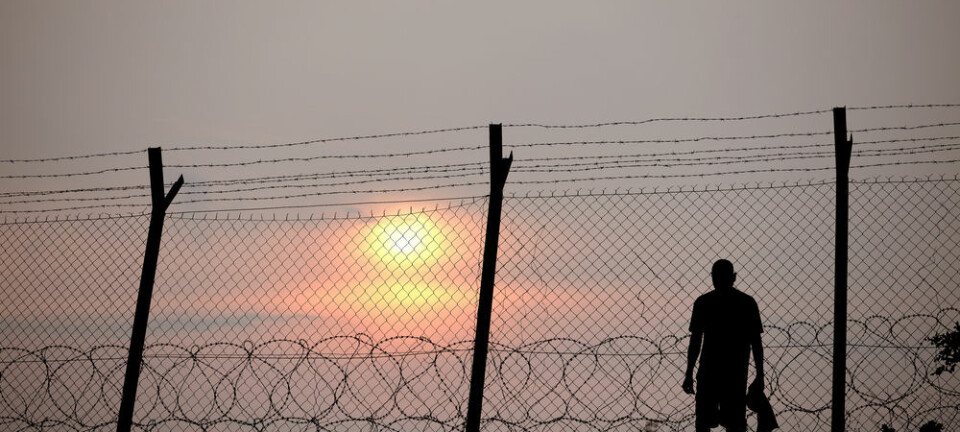
How female emancipation has helped torture victims
Female emancipation in the West and sexual liberation means that rape has become less of a taboo subject and allows women to talk more openly to therapists.
Around 20 million people are currently on the move, fleeing from war and violent conflict around the world. Many of them have either experienced torture themselves, or have a family member who has, according to the International Rehabilitation Council for Torture Victims (IRCT).
Some victims of torture have been raped or subjected to some other type of sexual assault while questioned or held in prison.
“It’s called gender-based violence, It’s a form of politically motivated torture, where rapists exploit sex by, for example, raping their victim,” says Dr. Inger Agger, a researcher and consultant psychologist, and associated with the Nordic Institute of Asian Studies (NIAS), at the University of Copenhagen, Denmark.
“Both women and men are subject to gender-based violence. It’s extremely widespread and a big problem the world over. It’s extremely humiliating, shameful, and traumatising,” she says.
Feminism and sexology gave therapists the language to talk to victims
For many years, Agger has studied how the shame associated with gender-based violence affects victims, and how therapists can best speak to torture victims who have experienced such violent sexual assault.
She has identified key trends to characterise how therapists in the west, developed methods to rehabilitate torture victims who had suffered from gender-based violence.
The feminist movement in Denmark in the 1970s put women’s liberation on the agenda and helped to make the subject of sexual violence less of a taboo subject, enabling therapists to speak more freely with their patients, says Agger.
Assault is not a private shame
The development in sexology, combined with the 1960s sexual liberation in the west has helped western therapists to develop treatments and build-up knowledge on the psychological consequences of sexual assault.
“Female emancipation and the sexual liberation of women in the West gave us a language that has allowed us to communicate to torture victims that the oppression and assault that they’ve experienced isn’t a private shame, but that the atrocities happened because torturers wanted to break their victims for political reasons,” says Agger.
“The insight that women and people in general have rights, made it easier for us to talk to refugees who have been exposed to gender-based torture and tell them that their rights have been violated, and that they themselves aren’t to blame for it,” she says.
Agger presented her results at a conference organised by the IRCT in Mexico in late 2016, where 300 scientists, doctors, and other professionals working with issues surround rehabilitation of victims of torture attended.
Developing countries can use this experience
Agger has treated torture victims and written on the subject of gender-based violence.
She thinks that some of the early insights should be re-viewed and might be useful for mental health professionals in developing countries- where issues of women’s rights and reproductive health are still a burning issue.
“My hypothesis is that mental health professionals and rehabilitation centers for torture victims in some developing countries can perhaps use some of this experience that we have in the West, where female emancipation and sexology gave us the tools to break down the taboos around gender-based torture and enabling victims to articulate and give testimony about what they’ve been through,” says Agger.
“I want to test the hypothesis with a research project in a developing country, where there’s still a lot of shame surrounding rape. It should be a close collaboration with a local women’s movement,” she says.
Torture is still widespread
According to the UN’s convention against torture, victims already have the right to treatment for their physical and psychological scars.
At the IRCT conference, researchers from over 80 countries around the world discussed how the convention should be interpreted and whether the torture victims are actually able to access the treatments that they are entitled too.
“The world stands in a situation where it looks like the occurrence of torture is rising. Some of the things happening—not only in war and conflict zones but also in prisons and police custody—results are a large number of torture victims that need rehabilitation,” says Asger Kjærum, a lawyer in the IRCT.
All torture victims have a right to rehabilitation
At the conference, “Delivering on the Promise of the Right to Rehabilitation,” researchers shared their experiences and breaking research results and discussions, on how they can best treat victims.
“One of the things we’re presenting at the conference is what we can do to rehabilitate victims effectively from a scientific standpoint,” says Kjærum.
It is the first time in ten years that the IRCT has held a scientific conference.
Agger has recently published a study on her work with victims of torture in Cambodia, where Buddhist methods such as mindfulness and meditation play a large rehabilitative role.
-----------------
Read the Danish version of this article on Videnskab.dk
Translated by: Catherine Jex
Scientific links
- Transcultural Psychiatry, 2015: Calming the mind: Healing after mass atrocity in Cambodia. Doi: 10.1177
- The Blue Room: Trauma and Testimony Among Refugee Women – A Psycho-Social Exploration. (1992) London: Zed Books.










